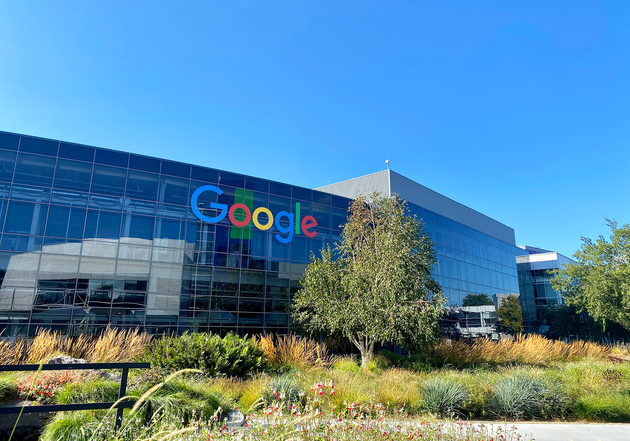
Photo/Zheng Yuhang (NBD)
NO.1 Google CEO Responds to Gemini "Blunder"
According to foreign media,=Google CEO Sundar Pichai recently sent an internal email to employees, responding to the Gemini problem for the first time, calling it "completely unacceptable". Pichai wrote that Google's AI team is working around the clock to fix the problem and has made progress. He stressed that the company will make structural reforms to Gemini to prevent similar incidents from happening.
Commentary: Google's Gemini project is a forward-looking AI innovation, but it also exposes Google's shortcomings in artificial intelligence ethics and quality.
NO.2 SpaceX to Conduct Eighth Manned Space Mission
According to foreign media, the American space exploration company SpaceX is about to conduct its eighth manned space mission, sending four astronauts to the International Space Station. The Falcon 9 rocket and Dragon spacecraft for the mission have been transported to the launch site. The mission, code-named Crew-8, is scheduled to lift off from Launch Pad 39A at the Kennedy Space Center in Florida at 00:04 a.m. Eastern Time on March 1.
Commentary: SpaceX's move will have a profound impact on the entire aerospace industry and will also open up new possibilities for human exploration of space.
NO.3 OpenAI Says New York Times Hacked GPT to Build Copyright Lawsuit
According to foreign media, OpenAI has asked a U.S. federal judge to dismiss part of a copyright lawsuit filed against it by the New York Times, accusing the latter of hiring hackers to attack ChatGPT and other AI systems and providing misleading evidence for the case. In December last year, the New York Times sued OpenAI and its largest shareholder, Microsoft, alleging that the two companies violated its copyright in literary works.
Commentary: The copyright dispute between OpenAI and the New York Times is a legal battle over AI authorship and a debate over AI ethics and social responsibility. The outcome of this case will have a significant impact on the development and regulation of the AI field.
NO.4 All-new Roadster to be Launched by Year-end
On February 28, Musk said on the X platform that the new generation Roadster electric sports car has completed production design and will be launched by the end of the year. The new Roadster will be equipped with a larger battery, with a range of up to 620 miles, making it one of the longest-range electric vehicles on the market. The new Roadster is reportedly being built in collaboration between Tesla and SpaceX and will be equipped with SpaceX thrusters, accelerating from 0 to 60 mph in under 1 second.
Commentary: The Roadster's range and acceleration are both amazing, demonstrating Tesla's leadership in electric vehicle technology.
NO.5 Microsoft Announces 11 AI Access Principles
According to foreign media, Microsoft has recently launched a new framework called the "Principles of Artificial Intelligence Access". Microsoft said the plan will "guide how we operate our artificial intelligence data center infrastructure and other critical AI assets globally." The framework contains eleven principles, including providing public APIs, allowing customers to change cloud providers, and committing not to use non-public data.
Commentary: This document will help Microsoft improve the quality and reputation of its AI services, and it will also provide a reference for the development and regulation of the AI industry.
NO.6 Wristband Phone Debuts at MWC
At the latest Mobile World Congress (MWC), Motorola showcased a concept device that can be rolled up. The official name is the rollable concept phone. When it's flat, it's a regular Android phone. When the user is done with the phone, they can simply bend it and wear it on their wrist, similar to a smartwatch. However, Motorola did not make any sales commitments at the show, so it remains to be seen whether the bendable wristband phone will make it to market.
Commentary: The device showcases Motorola's breakthrough in bendable screen technology and also provides new ideas for the future design of smartphones.
NO.7 Advanced Computing Cracks the Electronic Structure of Water
Although liquid water is ubiquitous, it has some complex electronic properties that have long puzzled scientists in the fields of chemistry, physics, and technology. According to a paper published in a recent issue of the Proceedings of the National Academy of Sciences, the Swiss Federal Institute of Technology in Lausanne has made significant progress in cracking this problem. They used the most advanced computational methods to date to crack the electronic structure problem of water.
Commentary: This research provides new insights into understanding the physical and chemical properties of water, and also provides new basis for the development of new water treatment and water utilization technologies.
Disclaimer: The content and data in this article are for reference only and do not constitute investment advice. Please verify before using.


 川公网安备 51019002001991号
川公网安备 51019002001991号





